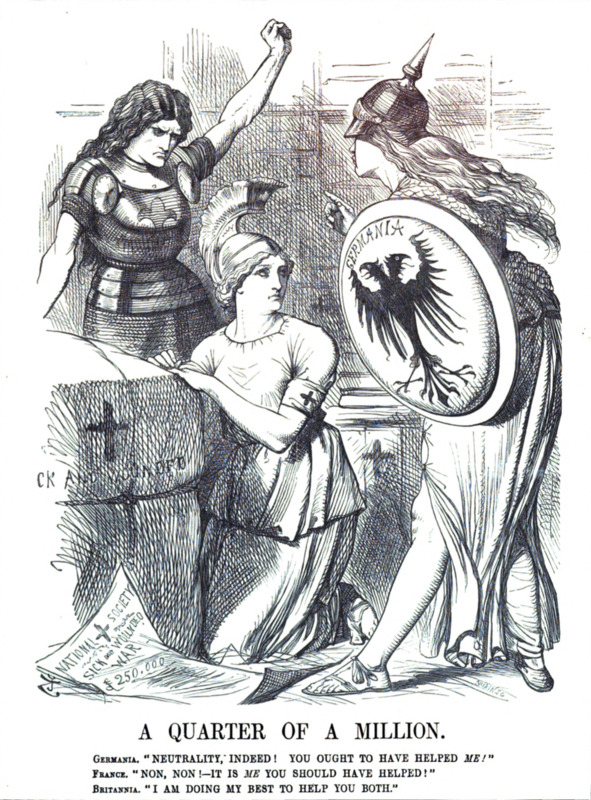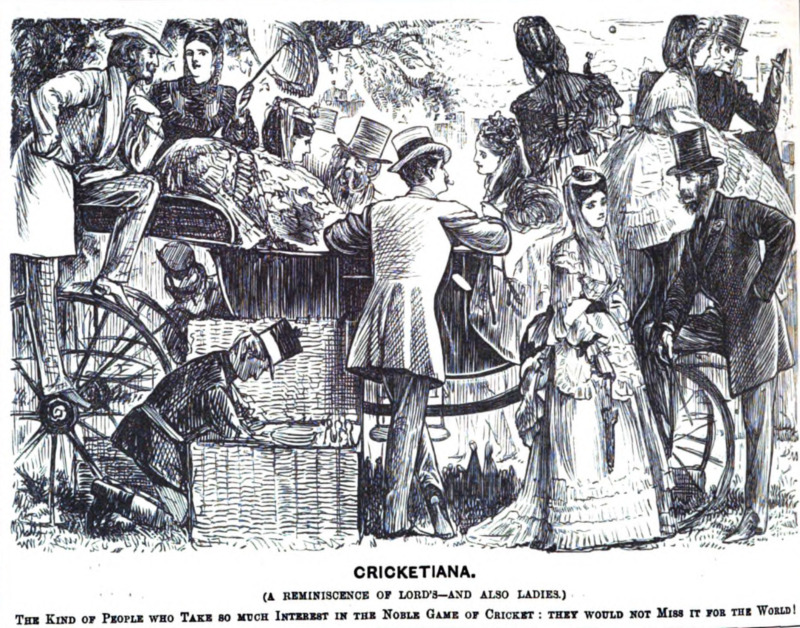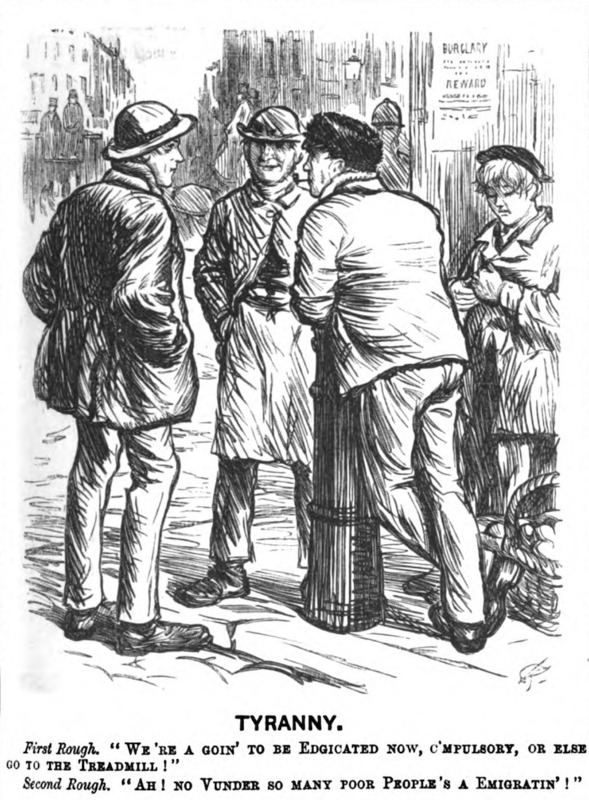1870: Flashes in the Pan
1870 served as both an end and a beginning: as the sun set on Britain’s Golden Age, the “Age of Scientific Utopianism” began, ushering forth a new way of approaching the natural world and inspiring trust in scientific literature. Duncan Bell describes this metaphorical “changing of the guards” as an ontological shift that fundamentally impacted language and, therefore, print media as a whole.
Perhaps it was the turbulent previous decade that encouraged this change: Prince Albert passed in 1861, a cholera epidemic struck the nation in 1866, the Second Reform Act was implemented in 1867, and 1868 saw two new prime ministers within the same year. Regardless of impact on the overall “epochs” of British history, these events certainly impacted the tone of Punch in 1870. Many of the satirical illustrations released in this year show chaos, struggle, or a general discontent with the trajectory of the nation.
As the Golden Age came to an end, the sort of successes that characterized the previous two decades became flashes in the pan.


